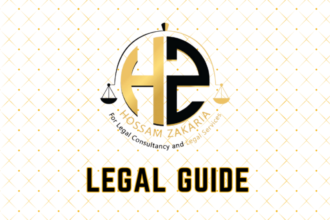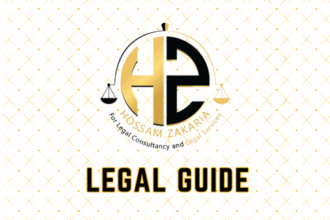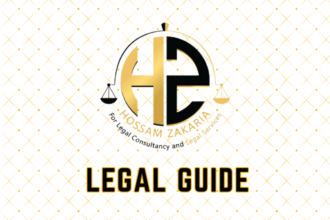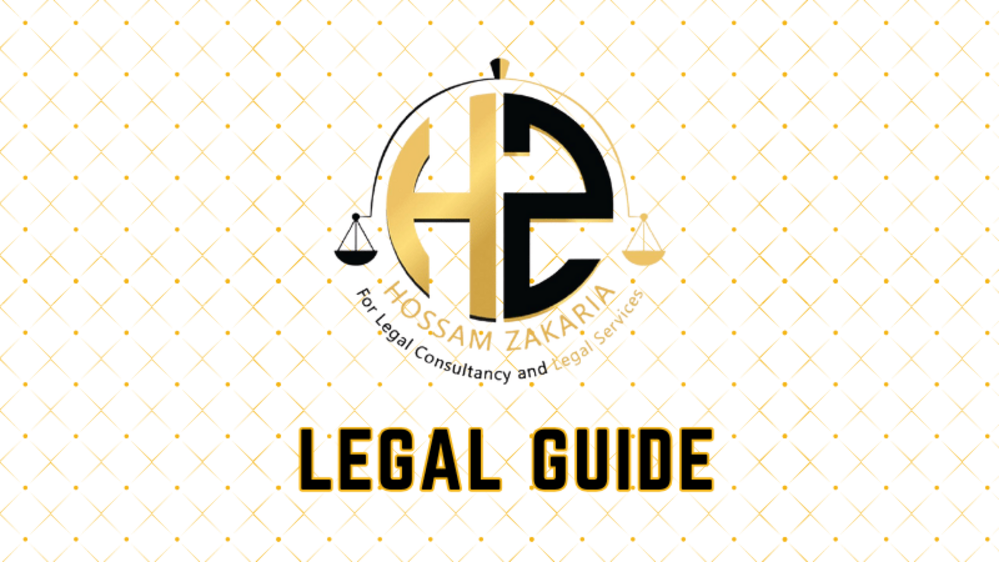Introduction
Over the last decade, financial crime has emerged as a global concern, compelling regulators and industry leaders to revisit their approach to anti-money laundering (AML) and counter-financing of terrorism (CFT). In this context, the Financial Action Task Force (FATF) recommendations represent the global cornerstone for effective AML/CFT frameworks. Saudi Arabia—the largest economy in the GCC—has made significant strides to align with FATF standards. As a result, businesses in the UAE that interact with Saudi banks or operate across the GCC region must pay close attention to Saudi compliance with FATF recommendations, especially in light of evolving legal developments and cross-border regulatory expectations.
This article provides an expert legal analysis of how Saudi banking compliance with FATF recommendations impacts UAE businesses. Executive leaders, legal professionals, and compliance managers will find actionable guidance tailored to their operational needs, with clear reference to UAE federal decrees and compliance obligations for 2025 and beyond. Our discussion bridges legal frameworks with practical risk management strategies, offering comparative insights, professional commentary, and hyperlinked resources for deeper exploration.
Why This Topic Matters Now
Recent updates to both UAE and Saudi AML/CFT laws, reinforced by regulatory cooperation across the GCC, have made compliance a strategic imperative. UAE-based enterprises with commercial links to Saudi Arabia must now adapt to expanded due diligence responsibilities, notification mandates, and cross-jurisdictional cooperation, as outlined by UAE Federal Decree-Law No. (20) of 2018 on Anti-Money Laundering and Combating the Financing of Terrorism and Illegal Organisations, along with subsequent cabinet and ministerial resolutions. Failing to recognize the implications of Saudi FATF compliance can expose UAE businesses to legal penalties, reputational risks, and operational disruptions.
Table of Contents
- Understanding the FATF Framework
- Saudi Banking Sector Alignment with FATF Recommendations
- UAE Legal and Regulatory Interplay
- Key Updates Impacting UAE-Saudi Cross-Border Transactions
- Legal Analysis and Case Studies
- Risks of Non-Compliance and Enforcement Trends
- Strategic Compliance Guidance for UAE Businesses
- Conclusion and Outlook
Understanding the FATF Framework
What is FATF and Why Does it Matter?
The Financial Action Task Force (FATF), established in 1989 by the G7, is the international watchdog for AML/CFT standards. Its 40 Recommendations and 9 Special Recommendations provide the blueprint for national legislative and regulatory frameworks against illicit financial flows, money laundering, and terrorism financing. FATF conducts regular mutual evaluations and publishes country-specific compliance findings, which heavily influence global banking relationships.
FATF in the GCC Context
Given the GCC’s role in cross-border finance and trade, all member states, including the UAE and Saudi Arabia, are active participants in MENAFATF (Middle East and North Africa Financial Action Task Force), the regional FATF-style body. Aligning national policies to FATF standards ensures continued access to international financial markets and reduces barriers to growth for compliant businesses.
Practical Consultancy Insight
For UAE companies, understanding the FATF framework is essential. International correspondent banks, regulatory authorities, and business clients expect robust AML/CFT controls throughout the supply chain. Non-compliance with FATF principles—directly or indirectly—can result in de-risking by banks, loss of counterparty confidence, or entry into FATF’s so-called “grey list”, as experienced by several jurisdictions regionally in recent years.
Saudi Banking Sector Alignment with FATF Recommendations
Recent Legislative Enhancements
Saudi Arabia’s path to FATF compliance has accelerated since its formal membership in 2019. Recent reforms have focused on the Anti-Money Laundering Law (Royal Decree No. M/39), the Law of Combating Terrorism Crimes and its Financing, and updated regulations by the Saudi Central Bank (SAMA). These measures address FATF recommendations on customer due diligence, beneficial ownership transparency, suspicious transaction reporting, and cross-border cooperation. SAMA also issues periodic circulars tightening expectations for supervised entities—especially banks engaging in offshore or cross-border activities.
Practical Impact for UAE-Saudi Transactions
For UAE businesses—whether through trade, investment, or digital remittances—Saudi financial institutions’ adherence to FATF standards translates to stricter requirements on documentation, source-of-funds verification, and partner due diligence. This impacts joint ventures, distributorships, e-commerce, and even payment processors operating between the two jurisdictions.
Comparison Table: Key Areas of Change
| Topic | Pre-FATF Membership (Saudi Arabia) | Post-FATF Enhancements (2019–2025) | Practical Implications for UAE Businesses |
|---|---|---|---|
| Customer Due Diligence | Basic KYC, less emphasis on beneficial owner ID | Enhanced CDD per FATF 10–13; strict beneficial ownership records | UAE clients must provide expanded corporate documentation |
| Suspicious Activity Reporting | Reactive, limited scope | Mandatory, real-time reporting and STR/SAR protocols | UAE companies may be subject to increased transaction scrutiny |
| Correspondent Banking | Fewer formal requirements | Ongoing relationship risk assessment and audit | Stronger vetting for cross-border account access or payments |
| PEP Identification | Ad hoc risk-based approach | Compulsory PEP screening and monitoring | Senior UAE executives classified as PEPs subject to deeper checks |
UAE Legal and Regulatory Interplay
Core UAE AML/CFT Legislation
The UAE has made substantial strides in recent years to bolster AML/CFT enforcement, as outlined in:
- Federal Decree-Law No. (20) of 2018 on Anti-Money Laundering and Combating the Financing of Terrorism and Illegal Organisations.
- Cabinet Decision No. (10) of 2019 concerning the Implementing Regulation (detailing sectoral responsibilities, financial thresholds, and reporting mandates).
- Guidance from the UAE Central Bank, Securities and Commodities Authority (SCA), and Dubai Financial Services Authority (DFSA).
These instruments align UAE law with both FATF and MENAFATF requirements, cementing shared approaches to risk assessment, record-keeping, customer onboarding, and international cooperation.
Key UAE 2025 Updates
As part of ongoing FATF evaluation cycles, the UAE government has proposed several 2025 legal updates expected to impact cross-border compliance:
- Enhanced beneficial ownership disclosure requirements for corporate clients.
- Expansion of ‘Designated Non-Financial Businesses and Professions’ (DNFBPs) subject to AML/CFT controls.
- ESG-linked compliance rules, reflecting FATF’s increased focus on corruption/tax crimes.
- Formalized protocols for notifying suspicious transactions, expanding on MoU agreements with Saudi SAMA.
Practical Application
For UAE enterprises engaged with Saudi banks, new UAE decrees require harmonized internal policies. This may necessitate updating KYC templates for Saudi beneficiaries, revising contract clauses relating to anti-bribery, or deploying new technology for secure cross-border payments.
Key Updates Impacting UAE-Saudi Cross-Border Transactions
1. Beneficial Ownership and Transparency
Saudi and the UAE now demand disclosure of legal and beneficial ownership down to the ultimate controlling party. This echoes FATF Recommendation 24 and is enshrined in the UAE Cabinet Resolution No. (58) of 2020 Regarding the Regulation of Procedures for Real Beneficiary Data, which is mandatory for licensing of all companies in the UAE mainland and free zones.
2. Cross-Border Reporting Mechanisms
Both jurisdictions have enhanced mechanisms for sharing suspicious transaction data. UAE Federal Decree-Law No. (20) of 2018 mandates any legal or natural person to file STRs without delay if money laundering or terrorist financing is suspected, regardless of where the transaction originated. Saudi banks, under SAMA advisories, now expect reciprocal cooperation for all inbound and outbound funds involving UAE entities.
3. Expansion of DNFBP Obligations
Non-banking sectors such as real estate, gold and diamond traders, auditors, and corporate service providers are now fully brought into AML/CFT compliance obligations. UAE’s application of DNFBP regulations—monitored by the Ministry of Economy—mirrors recent Saudi controls over leasing, professional services, and high-value goods dealers.
4. Digital Transaction Monitoring and RegTech Adoption
To address evolving threats in fintech, both SAMA and the UAE Central Bank have invested in digital monitoring tools powered by AI/ML. For UAE fintechs processing Saudi payments (such as remittance platforms or e-commerce gateways), these regulatory shifts mandate integration of cross-jurisdictional transaction screening protocols.
Legal Analysis and Case Studies
Hypothetical Scenario 1: Corporate Remittance Delay
Situation: A Dubai-based construction firm remits large supplier payments to a Riyadh-based subcontractor. The Saudi receiving bank invokes new FATF-aligned SAMA rules, requesting disclosure of the beneficial owner and source of funds.
Legal Considerations:
- UAE Law: Under the UAE Cabinet Resolution No. (10) of 2019, the Dubai firm must maintain accurate real beneficiary records and provide supporting documentation on request.
- Saudi Law: SAMA’s enhanced due diligence regime (2019 SAMA AML/CFT Regulation) mandates confirmation of counterparties’ identity, especially for non-Saudi entities.
Consequence: Any delay or incomplete documentation can freeze payments, result in SAR filings, or prompt regulatory investigation on both sides. UAE firms are thus advised to preempt KYC requests and proactively align with Saudi bank expectations.
Hypothetical Scenario 2: Real Estate DNFBP Reporting Obligation
Situation: A UAE-registered real estate broker is engaged by a Saudi client seeking to purchase property in Dubai. The broker is designated as DNFBP and subject to enhanced AML/CFT rules.
Legal Considerations:
- UAE Law: The broker must apply customer due diligence and file suspicious transactions via the UAE’s goAML platform, pursuant to Federal Decree-Law No. (20) of 2018.
- Saudi Law: Saudi anti-money laundering regulations impose reciprocal notification protocols when suspicious transactions involve Saudi nationals or companies abroad.
Consequence: A failure to file a timely STR can result in administrative penalties, criminal liability, and blacklisting of entities. Cross-border coordination and dual-reporting are required, necessitating regular compliance training and legal consultation.
Table: Penalties for Non-Compliance (Saudi vs. UAE)
| Issue | UAE Penalty (per Federal Decree-Law No. 20/2018 & Cabinet Decisions) | Saudi Penalty (per Royal Decree AML Law M/39) |
|---|---|---|
| Failure to Submit STR/SAR | AED 100,000 – 5,000,000 fine; possible business suspension | Up to SAR 7,000,000 fine; criminal prosecution |
| Inadequate CDD/KYC | AED 50,000 – 500,000 fine; license withdrawal | Institutional fine; personal accountability for compliance officers |
| Obstructing Investigation | Imprisonment (up to 3 years); higher fines | Imprisonment (up to 15 years); higher fines for repeat offences |
Risks of Non-Compliance and Enforcement Trends
Risks Facing UAE Businesses
- Regulatory Penalties: Fines, criminal charges, and business suspensions under UAE Cabinet Decision No. (16) of 2021 Concerning Administrative Penalties for Violations of AML Laws.
- Reputational Damage: Public naming/shaming of entities under investigation by the UAE Ministry of Justice or in the Federal Legal Gazette.
- Operational Disruption: Blocked cross-border transactions, loss of Saudi supplier and banking relationships, or increased cost of compliance audits.
Current Enforcement Climate
The UAE and Saudi Arabia have committed to more assertive enforcement action as evidenced by recent publicized fines, arrests, and regulatory investigations, especially in cross-border real estate and trade transactions. The UAE’s Financial Intelligence Unit (FIU) and the Saudi Financial Investigation Unit (SFIU) now conduct joint investigations and exchange information—increasing the likelihood of detection for non-compliance.
Strategic Compliance Guidance for UAE Businesses
Checklist: Compliance Best Practices
| Action | Legal Rationale | Recommended Frequency |
|---|---|---|
| Update KYC/Beneficial Ownership Documentation | Cabinet Resolution 58/2020, SAMA AML/CFT Regulations | Annual, and before any new cross-border transaction |
| Conduct AML/CFT Training for Staff | UAE MoJ and SAMA mandates | Semi-annual |
| Monitor Regulatory Updates via UAE Central Bank & SAMA Circulars | Alignment with latest legal expectations | Monthly |
| Establish Dual-Reporting Protocols for Suspicious Transactions | Federal Decree-Law 20/2018, SAMA AML Regulation | Ongoing/As needed |
| Engage in Regular Compliance Audits | Ministry of Justice and SAMA enforcement trend | Annual |
Strategic Recommendations from Legal Consultants
- Engage Professional Advice: Regularly consult with legal advisers specialized in GCC cross-border compliance to remain ahead of legislative updates.
- Leverage Technology: Deploy RegTech solutions that facilitate real-time monitoring and automated documentation for both UAE and Saudi compliance environments.
- Draft Contracts Carefully: Include explicit AML/CFT compliance obligations and notification clauses in agreements with Saudi partners.
- Document Everything: Keep clear records demonstrating proactive measures taken to comply with both UAE and Saudi legal requirements—a critical defense in regulatory investigations.
Conclusion and Outlook
The integration of FATF recommendations within the Saudi banking sector represents both a challenge and an opportunity for UAE businesses. By proactively aligning internal policies and technology stacks with evolving cross-border regulatory expectations, UAE companies can foster trust, unlock market access, and minimize compliance risk for years to come. The anticipated 2025 UAE legal updates, including amendments to Federal Decree-Law No. (20) of 2018 and increased transparency obligations, will further cement AML/CFT compliance as a strategic business benchmark for all GCC-facing enterprises.
Going forward, the most successful UAE businesses will be those that treat AML/CFT not as a box-ticking exercise, but as an integrated element of overall strategy and governance—enabling them to navigate shifting markets, regulatory scrutiny, and reputational risk with confidence and agility.
In summary, Saudi compliance with FATF recommendations should be viewed by UAE firms as a catalyst for higher operational standards and sustainable cross-border growth. By prioritizing continuous improvement and staying well-informed through credible legal sources, businesses can future-proof their position in an increasingly interconnected GCC financial landscape.
Suggested Visual Placement
- Table: Use the penalty comparison and compliance checklist tables for at-a-glance understanding.
- Diagram: Consider a process flow diagram illustrating the steps for cross-border transaction compliance between UAE and Saudi Arabia, from KYC initiation to STR reporting.
For further guidance on cross-border compliance or tailored legal support, consult with your legal adviser or reach out to our specialist team.



